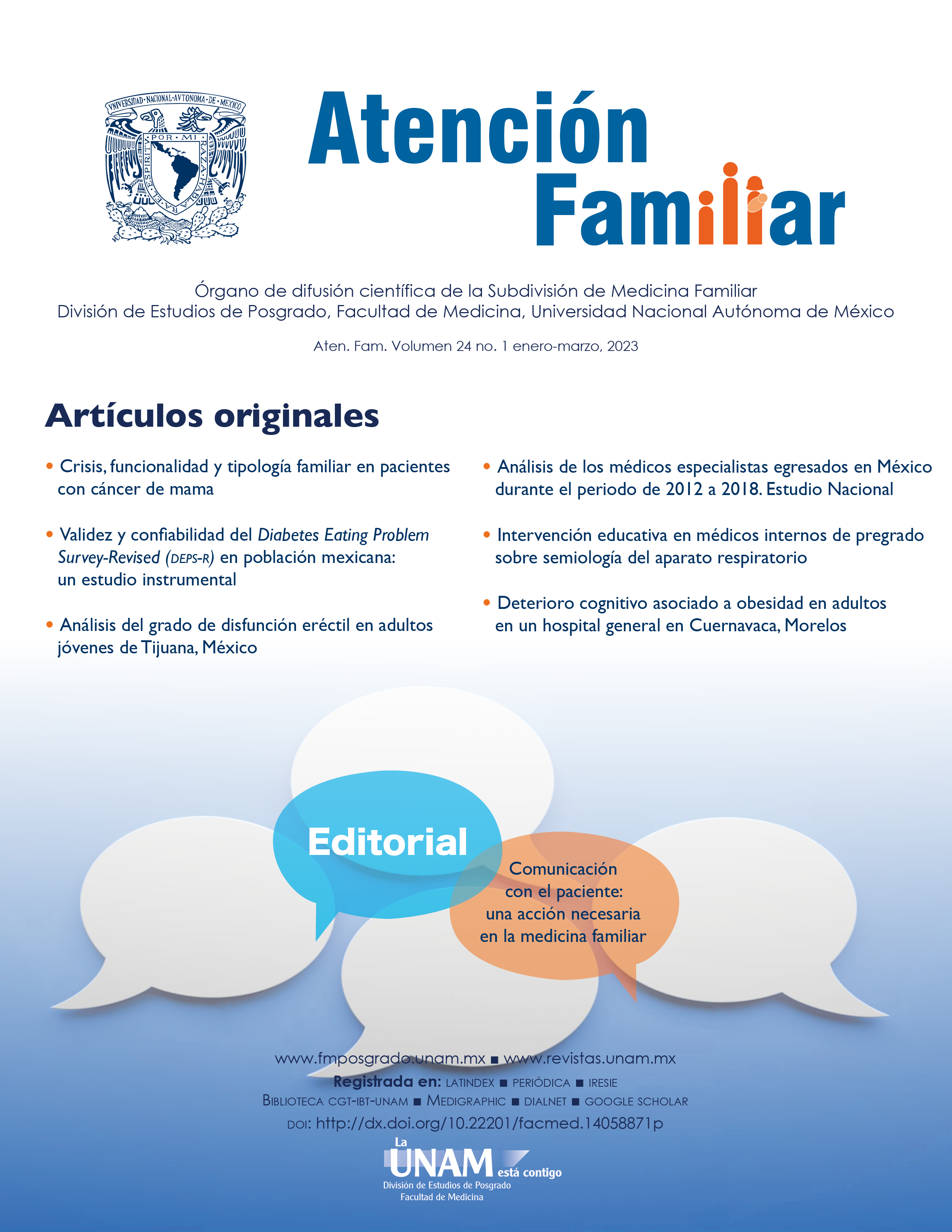Crisis, funcionalidad y tipología familiar en pacientes con cáncer de mama
Main Article Content
Abstract
Objective: to describe the crisis, functionality and family typology in patients with breast cancer. Methods: Analytical cross-sectional study, conducted between August and December 2021. The sample consisted of 250 patients with breast cancer who met the selection criteria. The presence of family crises was determined with the Holmes-Rahe test. Family functionality was assessed with the Adaptability and Family Cohesion Evaluation Scale iii. The family typology was determined based on its conformation. We perform descriptive and inferential statistics. Odds ratio, Pearson’s χ2 and Mann-Whitney U with 95% confidence intervals (p<0.05) were used for bivariate analysis. Results: the crisis frequency in patients with breast cancer was 89% (personal illness, changes in sleeping habits, diet and family conditions), dysfunctional families were present in 58% and the most frequent family typology was nuclear (63%). Conclusion: a high percentage of patients with breast cancer have family crises, which were generated during the disease process.
Downloads
Article Details
Citas en Dimensions Service

This work is licensed under a Creative Commons Attribution-NonCommercial-NoDerivatives 4.0 International License.
